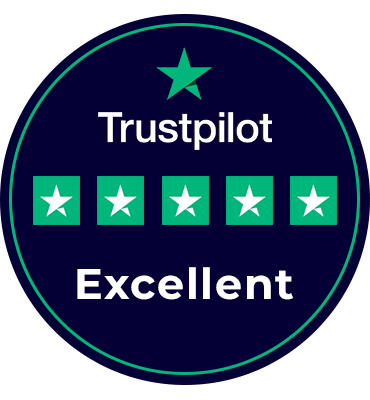Mastering Content Marketing for Industrial Companies
Manish Kumawat
Last Updated on: 22 January 2026
You may wonder about the importance of content marketing or digital marketing for manufacturing or industrial companies.
But…..It is important!
With everything going digital, companies have to step up their game to catch and keep the attention of their target audience. For industrial businesses, this means putting out educational content that draws people in. By sharing valuable information and insights, they can position themselves as leaders with lots of knowledge in their area, get more people to know about them (brand awareness), and eventually turn those visitors into customers.
Here, we aim to be your go-to guide on how to nail content marketing if you're an industrial company. We'll dive deep into what makes for effective content marketing within this sector by discussing its importance for such companies and offering hands-on advice on how you can prepare and roll out a winning strategy yourself—no matter if you're just starting or looking forward at improving your current efforts; we've got something here that will help boost your skills in making great use of content marketing, reaching your target audience, stepping up your marketing efforts, increasing brand awareness through sharing valuable information via creating top-notch educational content specifically tailored for industrial companies.
Understanding the Essentials of Content Marketing for Industrial Companies
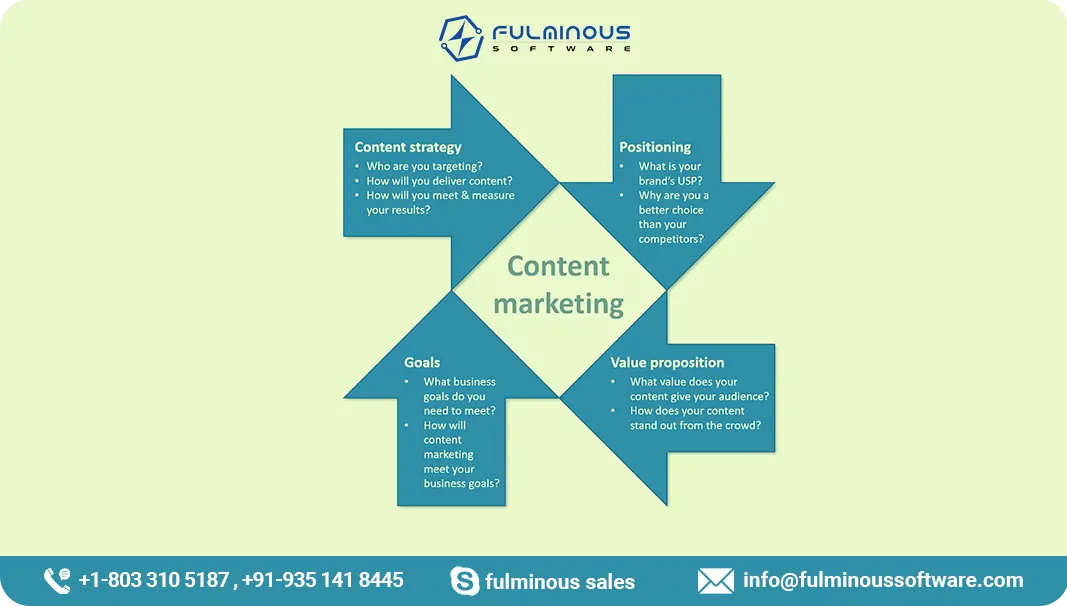
Content marketing is all about making and sharing stuff that's valuable, relevant, and informative to pull in and keep the attention of a specific group of people. When it comes to businesses that work in industries like manufacturing or engineering, this means putting together content that really speaks to what their potential customers need help with - think problems they're facing or questions they have.
With everything going digital these days, how companies get the word out about what they offer has totally changed. Content marketing is super important here because it helps industrial companies show off what they know, make more people aware of their brand, and keep customers interested and loyal.
Defining Content Marketing in the Industrial Sector
In the world of factories and big machines, content marketing is all about planning and sharing really helpful information to catch the attention of people who might buy something. The main idea here is to offer up educational stuff that answers specific problems or needs these folks have.
With things like heavy machinery or parts, you need someone who knows their stuff inside out. Content marketing steps in by connecting those looking for answers with the info they need to choose wisely.
Why Content Marketing is Crucial for Industrial Companies
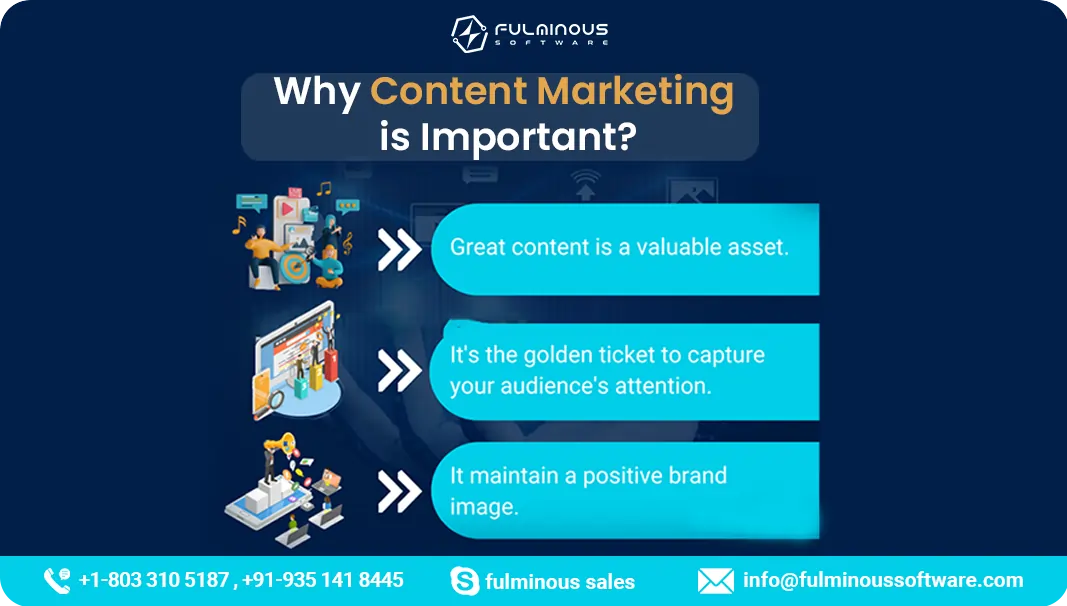
Content marketing for industrial companies is super important for a bunch of reasons.
- Brand Awareness: Boosts visibility and establishes industrial market authority.
- Lead Generation: Attracts more website visitors, turning them into potential leads for the long term.
- Sales Growth: Enhances chances of closing deals through informative content.
- Customer Trust: Builds credibility with high-quality, valuable information.
- Business Development: Drives significant growth by guiding customers through the purchasing process.
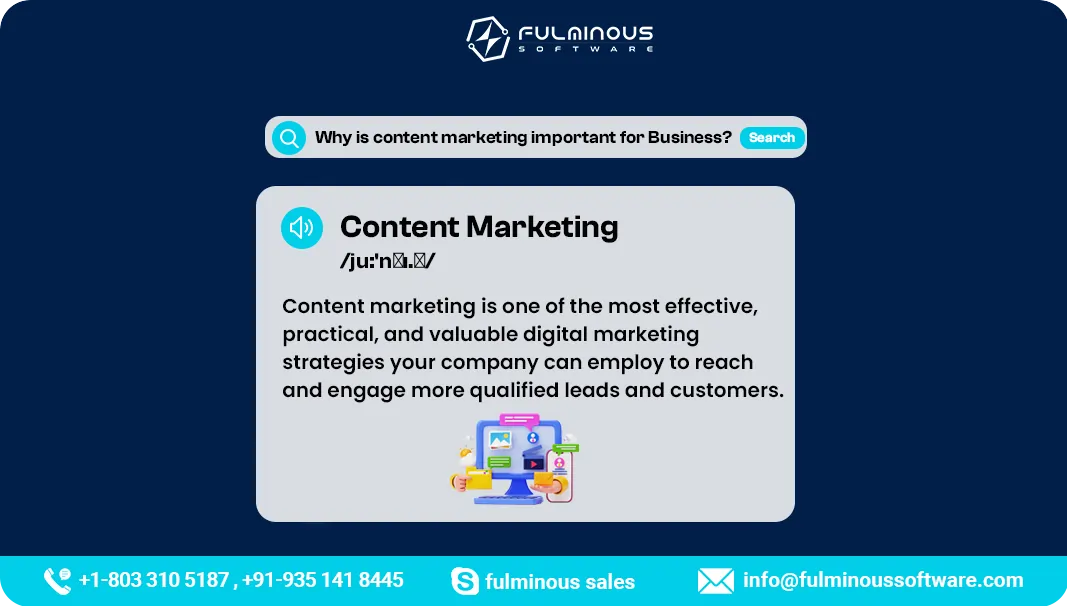
Preparing for Your Content Marketing Journey
Before you jump into content marketing, it's really important to get ready and make a plan for your digital marketing journey. Having a good marketing plan in place means you know what your goals are, who you're talking to, and how the buyer goes from just looking to actually buying.
First off, figure out who you're trying to reach and what problems or challenges they have. Knowing this helps a lot when making content because it makes sure what you create is something they'll care about. Also, think through the steps someone takes from first hearing about something all the way to buying it so that your content can help them along at each point.
Putting together a detailed marketing plan and getting clear on who your audience is plus their path from awareness all the way through purchase will let you craft messages that not only grab attention but also turn people into buyers.
Essential Tools and Resources Needed
For industrial companies to nail their content marketing, they need the proper tools and resources. Platforms designed for content marketing can be a big help with making, handling, and sharing stuff.
When it comes to getting your valuable content out there in front of the right people - which is what inbound marketing is all about - tools like email software and social media platforms are key.
At its heart though? Content that matters; this means pouring time into gathering industry research, diving into case studies, and listening closely to experts. Doing so ensures you're not just adding noise but actually offering something worthwhile to those you want to reach out to – setting yourself apart from rivals in the process.
Set Your Target Audience and Their Needs
To really nail content marketing, it's super important to figure out who you're talking to and what they need help with. When you know your potential customers and the problems they're bumping into, you can make stuff that hits right where they need it. Here are some things to think about when trying to get who your target audience is:
- Do some market research so you can get a clear picture of who might buy from you.
- Look into the specific troubles and hurdles of your target people.
- Find out what kind of info or solutions these folks are on the hunt for.
Create a Content Marketing Strategy for Your Website
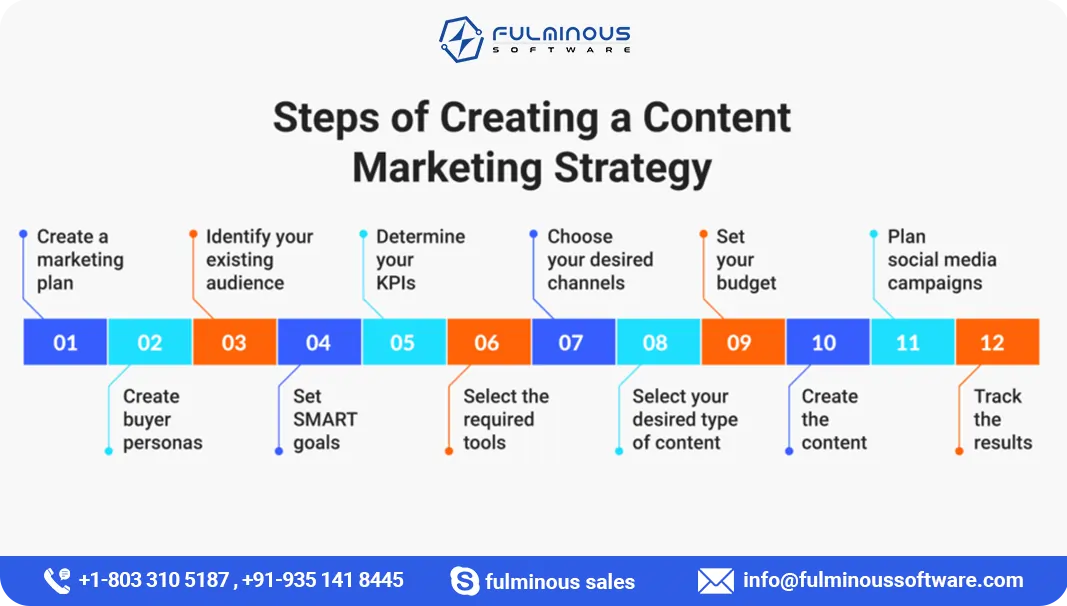
Industrial company content strategies have great relevance. To do well in the industrial world, it's super important to have a solid plan for your content marketing.
- Start by figuring out what you hope to accomplish with your content marketing, like getting more people familiar with your brand, finding new leads, or boosting sales.
- Pick out the best approaches and methods based on the goal.
- Think about what kind of stuff will catch the attention of the folks you're trying to reach and fit nicely with what you're trying to do in terms of marketing.
- Make sure there's a game plan for how and where this content is going out so it lands right where it needs to be.
Step 1: Setting Clear Objectives and Goals
When you start making a plan for content marketing, the first thing to do is figure out what you want to achieve and set some goals. Think about aiming for:
- Getting more people to know about your brand: Use content marketing so more folks find out about you and visit your website.
- Bringing in leads: Make stuff that gets people interested enough to share their contact info with you.
- Boosting sales: Create things that help guide potential buyers toward making a purchase.
Pick keywords related to what you're talking about carefully because they can make it easier for people looking online to find your website. By having clear aims and using smart SEO tactics, like choosing the right keywords, you can get ahead in getting noticed by potential customers at an early stage or "top of the funnel" as we say in marketing talk while drawing them into visiting our site through organic traffic methods without paying extra just by being clever with words!
Step 2: Develop a Content Calendar
After you've got your digital marketing or content marketing goals and objectives in place, it's time to make a content calendar.
With this plan, start by picking out topics that match what you're trying to achieve and what your target audience wants or needs. Think about the different steps someone takes from just learning about something to actually buying it, and make stuff that helps them along the way.
Then decide how often you want to put out new content. Having a regular schedule means people will keep coming back because they know there’ll be something new waiting for them.
Using an editorial calendar can really help here. It lets you lay everything out so you can see what’s happening when; who’s doing what; and makes sure nothing gets missed.
By putting together a content calendar like this, keeping things organized becomes easier which means consistently giving your target audience great content that they find valuable.
Step 3: Creating and Curating High-Quality Content
For industrial companies, it's super important to focus on making and sharing high-quality content. To do this well, follow these tips:
- Write stuff that's educational, insightful, and practical for your readers.
- Make sure whatever you create is easy to understand, clear, and hits home with the problems or needs of your target audience.
- Use multimedia like images, videos, or infographics to make the info more interesting and easier to get.
- Work with experts in the industry to get even more depth and authority in your content.
By focusing on making top-notch content that really connects with what your readers need and want, you'll set yourself up as a trusted source of information in your field and catch the interest of potential customers at each step of their buying journey.
Step 4: Distributing and Promoting Your Content
Once your content is ready, the next move is getting it out there and in front of people who need it. To do this right, use a mix of ways to share and promote your stuff, like:
- Share things on social media platforms where your audience hangs out.
- Use email marketing to send useful content straight to people who want it.
- Think about paying for ads on search engines or social media to reach more folks.
Having a solid plan for spreading and promoting your content helps make sure the right people see it, which can boost your chances of getting noticed and bringing in new leads.
Types of Content That Resonate with an Industrial Audience
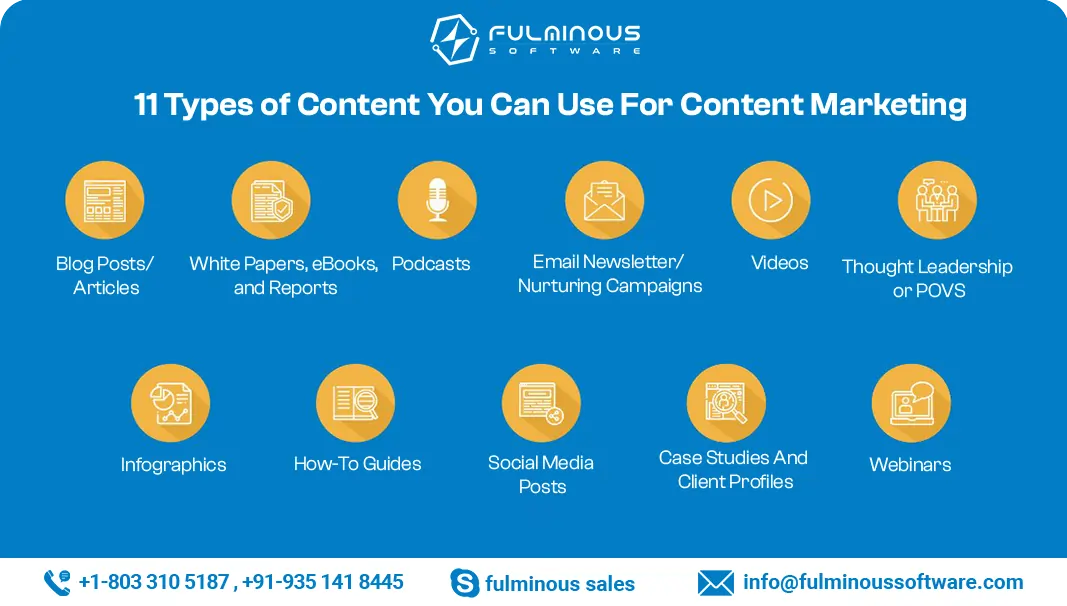
To really connect with folks in the industrial world, it's smart to mix up what you share so it hits home for them. Here’s a look at some stuff that works well:
- Educational content: It's all about giving your audience cool facts, updates on industry trends, and resources that help them know more and make smarter choices.
- Case studies: Display your expertise by offering case studies of projects.
- Visual content: Images, videos, and infographics can assist clarify complex concepts and increase enthusiasm for sharing your content.
By mixing educational bits, case studies showing off your wins, and eye-catching visuals into what you put out there; You're not just reaching out—you're also building trust as a go-to source.
Blog Posts and Articles
Blog posts and articles are really good ways to teach your industrial audience quality content. Discussing the latest developments in the industry, offering professional guidance, and providing top suggestions are the best ways to differentiate your industrial business as an experienced leader.
When you're writing blog posts and articles, try to give useful information that solves problems or challenges that your readers might have.
To get more people to visit your website naturally, use keywords that matter to them and make sure search engines like Google can find your quality content easily.
Case Studies and Success Stories
Case studies and success stories really help show off how good your company is at what it does. By telling stories about real situations where you've helped industrial clients overcome their problems, you can prove your capability to do the job for clients.
When putting together case studies, make sure to talk about the problem or challenge faced, what solution your team came up with, and what was achieved in the end.
Depending on who you're trying to reach, case studies can be shared as written articles, videos, or even slide presentations. Social media platforms, email newsletters, and of course posting them directly onto a website are great ways to get these stories out there so they catch people’s attention.
By consistently sharing engaging case studies and success tales, you not only prove yourself as an expert but also build credibility within the industry among the target audience including potential customers through channels like social media.
Engaging the Middle of the Funnel
To connect with potential buyers who are right in the middle of deciding what to buy, it's really important to guide them along and help them lean towards choosing your product.
To reach out to these potential buyers effectively, you should come up with marketing campaigns that directly speak to what bothers them or needs fixing.
Make sure the information you provide fits just right with what these potential buyers want at this stage by showing off your know-how and why your company stands out as the top pick.
By doing a good job of connecting with people when they're halfway through their buying process, you bring them closer to picking something from you instead of someone else. This way increases the chances they'll go through with a purchase.
eBooks and Whitepapers
EBooks and whitepapers are really the best for content marketing. This information lets companies in the industrial sector show off their smarts and give useful stuff to the people. With whitepapers, you get detailed reports that dive into specific topics or issues, offering thorough analysis and research. On another note, eBooks cover topics more broadly and are often swapped for visitor details so they can access this valuable content.
Webinars and Workshops
Webinars and workshops are like interactive classes that give people who might be interested in what a company does some really useful tips and knowledge.
With webinars, which happen online, you can either join live or watch a recording later. They're great because you get to learn from experts right there on the spot and even ask them questions as they go along. Workshops take things up a notch by letting participants actually try things out themselves.
By putting on these webinars and workshops, industrial businesses can share important information with people likely to be interested (that's potential customers), show off how much they know (making themselves look like leaders in their field), and earn trust from those listening.
Converting Leads at the Funnel's Base
For industrial companies, turning leads into new customers when they're at the bottom of the funnel is super important to stay in the industrial market.
Product Demos and Tutorials
For industrial companies, showing off what they sell through product demos and tutorials is a smart way to catch the eye of people who might want to buy from them.
With videos or interactive online stuff, product demos let interested buyers dig into what's being sold, checking out all its bells and whistles. Tutorials are there too, guiding users step by step on how to get the most out of these products or services.
Spec Sheets and Brochures
Industrial businesses need to use specification sheets and brochures to give prospective buyers comprehensive product information. The company's products and services are described in detail with their characteristics and advantages, on these pages.
Spec sheets are all-in-one documents that list a product's technical specs, measurements, performance indicators, and other pertinent details. Conversely, brochures present a condensed and aesthetically pleasing synopsis of the business's goods and services.
Optimizing Content for SEO
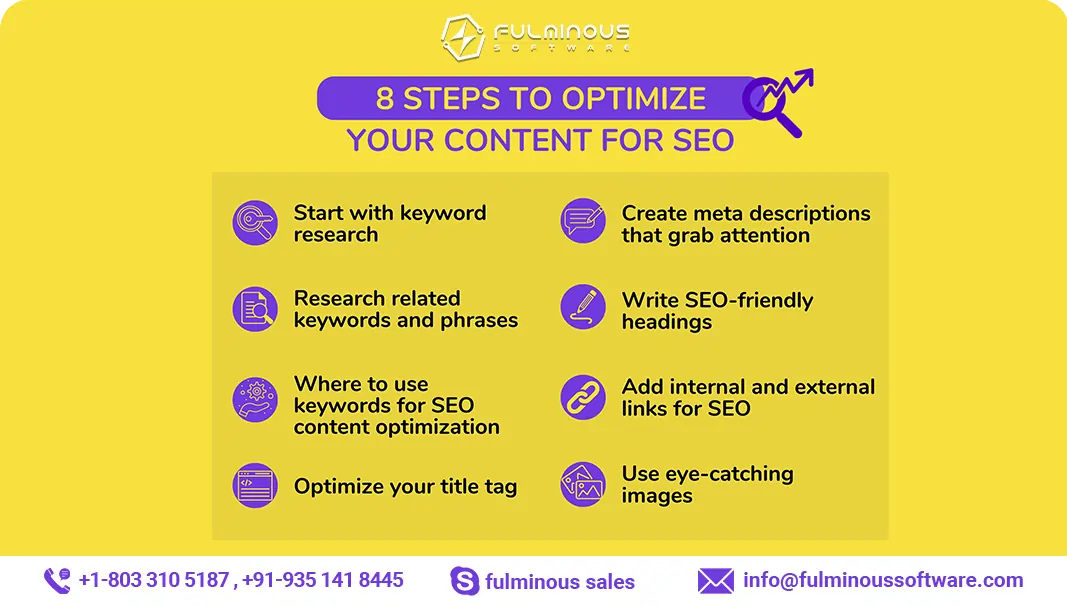
For industrial companies, making their online content SEO-friendly is super important to get more people to visit their website naturally. To do this well, they need a good plan that includes finding and using the right keywords and phrases that folks might type into Google when looking for what these companies offer. These important words should be put into different parts of the website like blog posts, descriptions of products, and special pages designed to draw visitors in.
With on-page SEO tricks—like tweaking meta tags (the bits of text that tell search engines what's on your webpage), headings, and even describing images so search engines can understand them better—the visibility of a company's content gets a boost.
Keyword Research for Industrial Topics
Finding the right words that potential customers use to search online is super important for industrial companies wanting to be seen more on the internet. By figuring out these special words or phrases, businesses can make a plan (SEO strategy) that helps them show up better in search results.
To start, companies might use tools like Google Keyword Planner. With these, they can find popular but not too competitive keywords related to what they offer.
By doing this keyword homework and tweaking their website accordingly, industrial companies boost their chance of getting noticed online (online presence), pulling in visitors naturally without paying for ads (organic traffic), and connecting with folks who might want what they're selling.
On-page SEO Techniques for Higher Visibility
On-page SEO methods are super important for making sure people can find industrial companies' content online and draw in organic traffic. These businesses can increase their chances of appearing higher on search engine results by making changes to certain aspects of their website's content.
- They make sure to use the right meta tags (like title tags and descriptions),
- Organize their info with clear headings,
- Add descriptive labels to images,
- And check that their site is easy to use on phones and computers alike.
Leveraging Social Media in Content Marketing for Industrial Manufacturing Companies
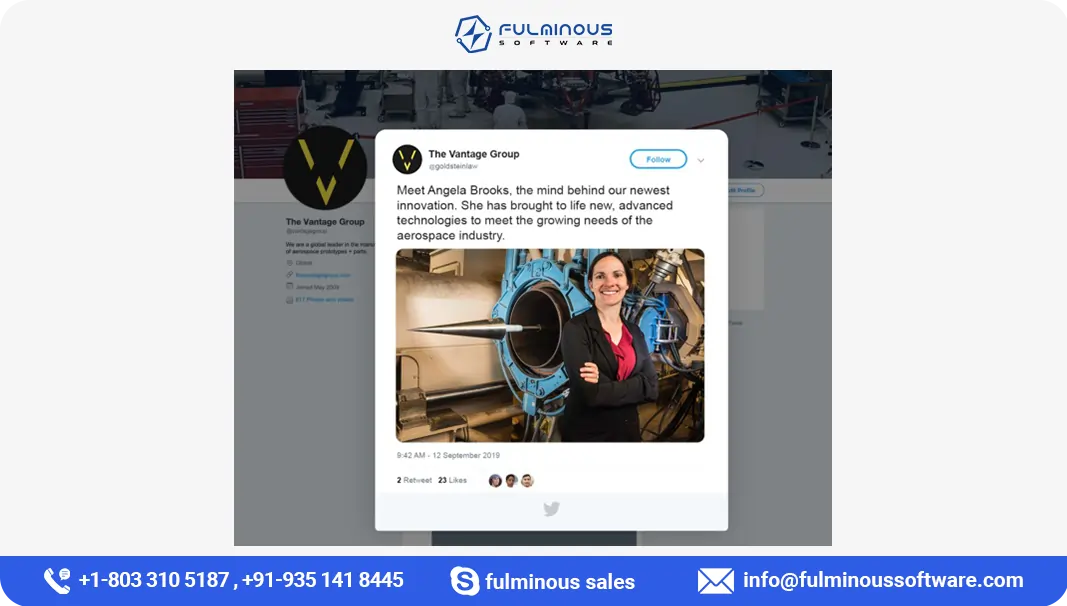
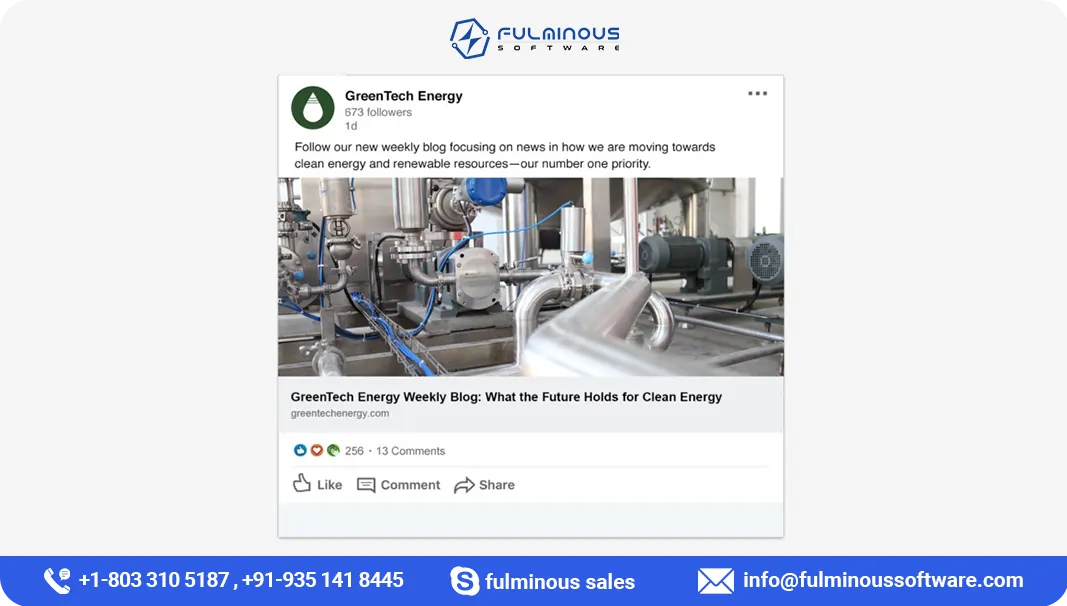
Using social media is super important for manufacturing companies that work in industries to get their message out there and grab the attention of more people. Social media is a great way for industrial businesses to talk directly with folks and grab more visitors to their websites.
Choosing the Right Platforms for Your Audience
For industrial companies, picking the right social media spots is key. Every social media spot comes with its own special traits and types of users. This means it's really important to figure out which ones will connect best with the people they want to reach.
Take LinkedIn as an example; it's where lots of professionals hang out and network, especially those looking for business-to-business connections.
By carefully choosing which social media platforms, industrial firms stand a better chance of expanding their presence online.
Strategies for Effective Social Media Engagement
For manufacturing companies, it's really important to connect with people on social media. See some ways they can make their social presence stronger:
- By posting regularly, you keep folks interested and up-to-date with cool stuff related to your field.
- When someone takes the time to comment or send a message, getting back to them quickly shows you care about what they have to say.
- Sharing useful tips and info makes you look like an expert in your area.
- Don't just talk about yourself; interact with other professionals, influencers, and potential customers by liking and commenting on their posts too.
Assessing the Outcome of Your Content Marketing Activities
For industrial companies, it's really important to keep an eye on how well their content marketing is doing. They need to see what's working and what needs a bit more work. By looking at key performance indicators (KPIs), they can understand if their strategies are hitting the mark. Some of the main things they look at include how many people visit their website, how engaged these visitors are (like how long they stay on a page or if they leave quickly), as well as new leads, conversion rates, and gaining new customers.
By keeping track of these KPIs regularly and seeing how their content marketing efforts perform over time, industrial companies can tweak what they're doing.
Key Performance Indicators (KPIs) to Monitor
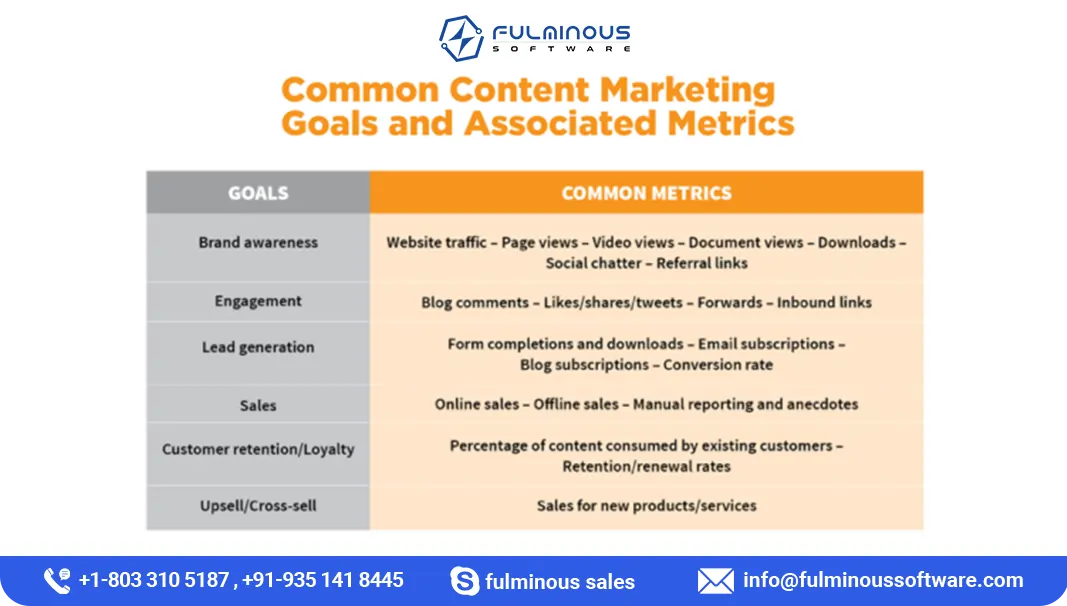
To figure out if your content marketing is doing well, it's key to keep an eye on certain indicators that show how much your content is helping the company do better and make more money.
- With website traffic, you want to see how many people are coming to your site and where they're coming from.
- For engagement metrics, look at stuff like how long people stay on a page if they leave quickly (bounce rate), and how far down they scroll.
- Lead generation means keeping track of the leads or potential sales contacts made through your marketing efforts.
- Checking conversion rates involves seeing how many of those potential customers end up buying something because of what they saw or read on your site.
- Lastly, customer acquisition focuses on counting new customers who decided to buy thanks to content marketing efforts showing its impact directly on profits.
By watching these KPIs closely industrial companies can really get a sense of whether their marketing moves are paying off They can spot areas needing work and use solid data making smarter choices leading toward even greater success.
Conclusion
Wrapping things up, getting really good at content marketing for industrial manufacturing companies means you've got to plan it out carefully, keeping in mind what makes these businesses special. Establish specific objectives and choose a conversation partner first. It's also super important not only to make sure your online stuff is easy for people (and Google) to find but also to use places like Facebook or Twitter can really help get more eyes on what you're doing. Always keep an eye on how well your efforts are working and don't be shy about trying new things with your content if needed. By staying informed and engaging with your audience consistently, watching how all the hard work pays off in terms of better results from your industrial content marketing for the long term.
FAQs
Q1: Why is content marketing important for industrial companies?
A: Content marketing boosts brand awareness, generates leads, builds customer trust, and drives sales growth.
Q2: What types of content are most effective for an industrial audience?
A: Educational articles, case studies, webinars, tutorials, and spec sheets resonate well with industrial audiences.
Q3: How can industrial companies optimize their content for SEO?
A: Use relevant keywords, meta tags, and clear headings, and ensure mobile-friendly content for better search engine visibility.
Q4: Which social media platforms should industrial companies focus on?
A: LinkedIn is ideal for B2B networking, while Facebook and Twitter can enhance brand awareness and customer engagement.
HIRE A TOP SOFTWARE DEVELOPMENT COMPANY

 Verified
Expert in Software & Web App Engineering
Verified
Expert in Software & Web App Engineering
I am Manish Kumawat, co-founder of Fulminous Software, a top leading customized software design and development company with a global presence in the USA, Australia, UK, and Europe. Over the last 10+ years, I am designing and developing web applications, e-commerce online stores, and software solutions custom tailored according to business industries needs. Being an experienced entrepreneur and research professional my main vision is to enlighten business owners, and worldwide audiences to provide in-depth IT sector knowledge with latest IT trends to grow businesses online.
Partner with Top-Notch Web Application Development Company!
Discuss your Custom Application Requirements on info@fulminoussoftware.com or call us on +1-903 488 7170.
15 Days Risk-Free TrialRecommended Articles


